How to build a global, moneyless, interest-free trading system: Matthew Slater of the Credit Commons Collective
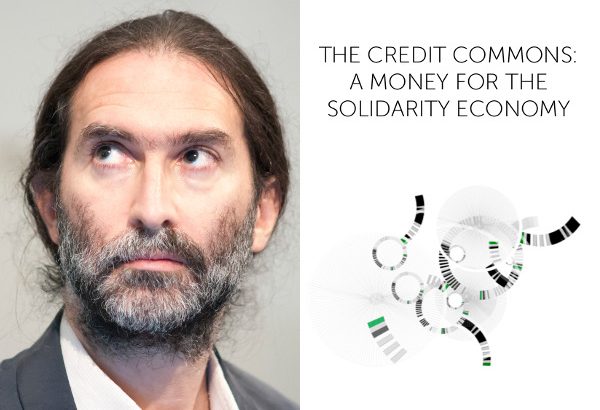
Today I’m talking with Matthew Slater, author of the Credit Commons white paper – an idea to link together mutual credit schemes anywhere in the world to create a global, moneyless trading system.
Hello Matthew. Your white paper changed my life. And now I’m part of a team working on the Open Credit Network – a mutual credit network for the UK. But – before we start talking about potential solutions to the world’s problems, is it too late? I know you’ve been working with Jem Bendell on his Deep Adaptation programme. Is it already too late to turn things around, or are we looking at some sort of societal collapse? Are you thinking that the best we can do is push back the date of collapse?
The idea of societal collapse is very undefined. What I do believe is that it’s too late to avert catastrophic climate change, and so we’re headed towards 2, 3, 4 degrees of warming and destruction of most global ecosystems, on which we depend for our food and for everything else. So I think that regardless of that you, I or anyone is able to do in the next 5-10 years, we’re going to see a large-scale destruction of our way of life. So we need to be thinking in terms of resilience and adaptation rather than mitigation. The mainstream debate is still about mitigation – how can we stay below 2 degrees etc. But the science is saying no – the ocean is already warm enough to keep the atmosphere warming for the next 40 years. So there’s no chance of meeting those targets, which means difficult times are coming. We don’t know exactly what kind of difficult times, so we need to be thinking in general terms around building resilient lives and resilient communities.
Do you think that mutual credit is a way of building this resilience in communities?
I think it’s a way of decentralising the economy, which is one of the principles of resilience. There would be shorter supply chains and decentralised production because the way money works influences those mechanisms.
I guess we have to explain briefly what mutual credit is for people who don’t know. But first, Why are you doing this? Why is moneyless trade such a good idea?
There are many criticisms of the fiat money system. A popular one is that money is created when people borrow it. So you go to the bank and take out a mortgage. That money didn’t exist before. You spend it into the economy, and it often leaves the economy into someone’s tax haven bank account. That means that money isn’t available for borrowers to earn back to pay off their debt. So there is a disequilibrium where more and more money is being called into existence, because it’s needed, and it’s eventually being locked away so that it can’t be paid back. That creates a lot of problems around inequality and economic injustice, because people are borrowing money, but are not able to earn it to pay it back.
And how did you get into this. Was there a lightbulb moment?
It was when I discovered that I could find a niche for myself, programming software for LETS (local exchange trading systems), and someone told me that the financial crisis that had just happened was done deliberately. I couldn’t imagine how this could be, morally, but also, how could the financial system be controlled like that? I got more into alternative media, and began to find out. It showed me that there is very little understanding in the mainstream of how the money system works, and there are alternative explanations that have been pushed to the margins of the economic discourse.
Do you want to have a go at explaining mutual credit – very briefly?
So I’ve already explained how fiat money becomes slowly unavailable to be repaid. With mutual credit, it’s difficult to save, as it doesn’t pay any interest and you can’t make it scarce and charge interest, so you may as well spend it back into circulation and make it available for people to earn and pay back their loans. The ledger shows that for every debt there’s a credit. So it all exists in one system and the books balance. From an economic and a moral perspective, mutual credit is the accounting of exchange. For everything you spend, you must earn it back, and for everything you earn, you must spend it back. So you begin on zero; you end on zero; the sum of all the accounts at any one time is zero; and the ledger is just showing you the current imbalance in your exchange. If you intend to exchange, you should be looking at mutual credit. If your intention is to accumulate, you probably want fiat or commodity money of some kind.
I think that penny dropped for me when I read Tom Greco’s book, the End of Money and the Future of Civilisation, and not long after, I read your Credit Commons White Paper. Even if I didn’t understand all the technical details, I understood the implications of it. I interviewed Tom; plus here’s an introduction to mutual credit, and here’s your MOOC on Money & Society (which I’ve taken – and it was very illuminating).
There are those who would point to cryptocurrencies as a more viable solution. Why is mutual credit a better idea?
Crypto is much closer to fiat. It’s about building a world without trust. Governments and banks aren’t trusted, so no-one has the authority to guarantee the value of each token. The only reason crypto coins are valuable is if there is a market for them, and there might be a demand for them. So it’s not a useful form of money because the value is always fluctuating. It might be nice if you’ve got no monetary policy and no-one in charge of the quantity of money – that might reassure some people. But at the same time, monetary policy is also there for a reason – you want to have the right quantity of money that the economy needs to facilitate trade. But in a system like Bitcoin, you’ve got a fixed quantity of money, and there’s no notion that there’s a specific economy that uses it. If more people want to use Bitcoin, the value will go up, which is great if you already own Bitcoin – you’ll benefit from the speculation. But it’s not great if you’re planning future purchases, or if you owe Bitcoin, and the price of your money goes up. Fiat money works very much in this way as well, when it’s traded on international markets – the prices go up and down relative to each other, creating what’s called exchange risk. In mutual credit, the community decides the purchasing power of the coin, and they stick to it. There isn’t a market for the units, because you can just create them and destroy them as needed. It’s a unit of debt that’s created when you borrow it, and it’s destroyed when you pay it back.
And what about Facebook’s proposed LibraCoin?
This is Facebook’s attempt to take over the world by creating another Silicon Valley monopoly. They’ve got all the credit card companies on board. They’re attempting to create a currency that’s more stable and maybe more liquid than the US dollar, and this is why the French minister of finance has said that it poses a risk to sovereign currencies. They want the Facebook coin to be used all over the world. They’re pushing it especially towards developing countries, to people they call the ‘unbanked’ – people that the banks haven’t worked out how to make a profit from. Facebook believes that it’s worked out a way to make a profit from them – because they have phones, and they can do transactions with them using cryptocurrencies.
So yes, it might provide a measure of convenience for online payments, but we have to be careful – whose money are we using. If I own $1000 of Facebook coin, I’m actually funding them to the tune of $1k. I’m lending them that much money, and they’re giving me a token in return.
Do you think Facebook are in a race with WeChat?
I’m not aware that WeChat is attempting to break out of China, but I think that Facebook is attempting to do the same as WeChat outside China – to own all social networks and all the transactions we do with each other.
Someone said that Mark Zuckerberg wants Facebook to be a ‘Panopticon’, which I think is a great word.
It already is, apart from the fact that it’s not quite a prison – although it is a bit if you want to quit and remove your data. The idea behind the social network is that everyone is there – and everyone is on Facebook. To build an alternative is difficult because you have to persuade everyone to come there instead, and to learn a new user interface.
Back to currency. What about those who say that we should go back to the Gold Standard?
The Gold Standard is good for some things but not for others. People are split on it right down the middle, on ideological lines. The Gold Standard was good in that it required all countries to develop equally, because they had to balance their trade. But there was a problem because as the economy grew, there wasn’t enough gold to go round, so it quickly became a fractional reserve system where there were more promises of gold than actual gold, and in both cases – the British Gold Standard and the Bretton Woods Gold Standard, they both collapsed for the same reason – that there wasn’t enough gold to pay off all the promises of gold. And you can’t make new gold (and it’s very difficult to discover). In a Gold Standard the quantity of money is fixed, so your monetary policy options are limited to how many times you leverage the gold you have. There’s a risk that someone will come for their gold, and there won’t be any gold to give them.
Would like you to explain the credit commons, and I’ll ask questions as you go along – especially if you get too technical. I want as many people as possible to understand this. Tom Greco said: What the world needs now is a means of payment that is locally controlled but globally useful. So if we have local mutual credit schemes all over the world, how can they be linked together to create a global trading system?
Tom’s statement is a good starting point because it says what’s needed. The Credit Commons is locally controlled in that anyone can get together with friends or trading partners to make a group. And in that group, they say that we will trust each other to pay back the credit that we give each other. That enables them to trade amongst themselves without money. That’s not globally useful however. The credit that they give each other is only acceptable by themselves. So if you want to make the credit acceptable more widely, that group has to come together with other groups, and those groups have to do the same thing. They say – we will value your credit, meaning that we trust you to keep your promises, so we will give you goods and services, knowing that you will give us goods and services in return.
So now we have a group of groups. It’s still not globally useful – but you can continue to build nested groups until it covers the entire world. So you can have a global group with continents in, then countries within continents, regions within countries, and you can bring it right down to the street level. Everyone is issuing credit, but because it’s guaranteed by each group, and each group of groups, it’s good to go across the world.
What obstacles do you face, and how do we remove them?
If the Credit Commons was a plan for global domination, it would face many obstacles. Economists don’t think in this way at all, so there would be no support from the economics profession. That means that the banks and governments won’t hear about it. It would have to be built from the grassroots up.
Then there are technical obstacles. At the moment we’ve got no business model. If you think of the Credit Commons as an accounting system, we’d have to build it and we’d have to tell investors that it would make money. The way I think about the Credit Commons is as a private ledger. It doesn’t really want to make money, it wants to provide a service – to be a piece of infrastructure. In the same way, roads aren’t supposed to make money. You have to sell them to private companies who put tolls on them, but that’s not very efficient, and it locks out lots of potential users who just go on the slower roads and use more fuel. So it’s very difficult to fund infrastructure in today’s environment, where everything has to make a profit.
Another obstacle is that communities that trust each other don’t really exist in any formal way. So to make Credit Commons group, you’d have to get together with your friends and say – we are a group – and constitute yourself, if not as a legal entity, then at least enough to own a website. People don’t think of themselves as part of those small communities of trust any more. People are much more likely to associate themselves with their employer or their football team.
You could have a Credit Commons group at each town level, couldn’t you?
Yes, if you wanted to start that, I guess you could talk to the town Chamber of Commerce or the town council, and bring in a lot of the local businesses and sole traders. You’d say to them – as long as you guys promise to pay each other back, you can all have a line of credit with each other, and that will save you some money.
So I guess we’re looking for local conveners to start with? And soon, the Open Credit Network will have a package – a website, directory, accounting software, for these local conveners. So if you want to start a group in your local town, let us know.
So the Open Credit Network is building a template?
Yes. So – a penny dropped for me when I realised that because credits always equal debits (because you can’t go into credit unless someone else goes into exactly the same amount of debit), there’s no value inherent in the system, so no value can be extracted, concentrated, used to corrupt the political system, or put into tax havens. It’s the only exchange system that doesn’t contain any inherent value, isn’t it?
It depends what you think value is. The way I look at is is – when you look at a pound coin, you think it has value, but you forget that someone else has a pound’s worth of debt. In mutual credit, because the pound’s worth of credit and the pound’s worth of debit are on the same ledger, it’s harder to forget that they are intimately connected. It’s the same with matter and antimatter – we forget that the antimatter exists.
What’s your vision – how big can it get, and if successful, what will it change? Is it going to work?
I don’t know if it’s going to work – it’s just something I want to do. I’m not attached to the outcome any more, because there’s not much time to do anything, before we’re making emergency measures and reconstructing society around whatever climate change is going to bring us. So I’m interested in the Credit Commons, and building local groups, because it seems like a useful thing to do, and it’s also a way of building community – and community is what we’re going to need to get through climate change.
Will the powers that be – the elites of this world – fight back if they can see their profits undermined?
I’m sure they will. There are ways to issue credit to each other informally – that could be outlawed. For me, there’s something very wrong about a government that says – because you created something that’s valuable, you have to give us some. That’s a different message to – because you used our money, you have to give us some. I’d like to draw a line there, and say that the government has no jurisdiction over my private circle of friends, who I trust.
They might see it differently.
They might – but then again, they might have bigger fish to fry.
If the value of the credit units in a local scheme are related to the value of their national currency, what happens if there’s massive inflation in a particular country, or economic collapse and their currency is worthless. How do we get the credit units away from national currencies altogether?
The value of a unit in a system is just declared by the members. If measuring your units in the national currency no longer works for you, you can just make the value something else. It worked in Brazil. They had a currency called the real – valued in eggs. The value of a real was one egg. The value of eggs is stable, so it worked well. It’s something that can be done easily.
And would the credit commons be able to include all existing LETS systems, timebanks and commercial barter schemes? Would they need to change anything? Would they need special software? Would they do it?
In order to trade with anyone using the Credit Commons protocol, all you’d have to do is to agree an exchange rate between your currency and theirs, and balance limits – meaning how much credit are you prepared to give each other. It doesn’t matter to the protocol if one group is trading in time, and another in eggs, as long as they can make an exchange rate. The obstacle is more likely to be technical. In the business barter sector, at the moment, they are all using different kinds of software, and they don’t see interoperability as being part of their business model. That’s why the Open Credit Network feels that it has to start again from scratch in building the local groups – because the business barter sector is very difficult to engage with.
I guess it’s difficult to build the infrastructure of the Credit Commons, but it’s a complicated problem rather than a complex problem – so it can be solved with the right skills, enough computing power and enough resources.
I was working with Dil Green on it recently – we were specifying the software. And yes, it all looks completely manageable. Having defined the protocol to build a unit of software that implements the protocol – we can then plug them all into each other to build this nested hierarchy.
So putting someone on the moon was a complicated problem. A complex problem is one for which there’s no clear solution, and no amount of technology or money or skills can guarantee you’ll get it right. Something like bringing up a child – that’s a complex problem. And the really complex problem is to get people to understand mutual credit and to use it. How do you think we can get people to use it. How do we bring people in?
There are lots of possibilities. I favour the climate change message, but there’s also the message that this builds community and builds trust between people. Then there’s the pitch that the business barter sector itself uses, which is that it’s a free line of credit and a way to move your surplus capacity. They say that if you have a restaurant and you have empty tables on a Monday night, you may as well sell those tables for mutual credit, then at least you can get something for them.
You can imagine other approaches – the monetary reform approach, that this is grassroots monetary reform. That doesn’t engage a lot of people.
Yes, I think the community / trust approach is the best approach. When I talk with potential conveners of local groups, and if I focus on interest-free credit, it sounds like a scam; whereas if I start talking about helping support small businesses and building trust in your community, that’s a much better introduction. And then when I mention that we’re setting up a co-operative, and building free software that anyone can use, people realise that you’re doing it for the right reasons.
For me, it’s also about economic justice, and even a more efficient and prosperous economy – because you don’t have this problem of ever-accumulating debt. It’s not about accumulating large amounts of money, and then lending it to other people at interest.
I’m from a working-class town, and I can’t reach people there with environmental arguments, but they’re very interested in regaining community that’s been lost. They want safer, friendlier, more interesting communities.
How do they respond to local authority talk of community policing or building community centres? Is that the same kind of community that people are looking for?
I think those things are suggested and required because of the lack of community. They don’t replace community. Real community is economic as well. It’s no good having community policing or community centres when you have giant superstores sucking wealth out of the community. The stuffing has been knocked out of communities so much that most people just stay in and watch TV. And they don’t want philosophical or abstract ideas either – it’s much more about asking how things work, and what is the benefit. So I say:
- You go into a directory, where you list your offers and wants, so that customers and suppliers can find you.
- You get an account.
- If a business buys from you, your account goes into credit, and the buyer’s account goes into exactly the same amount of debit.
- If you buy from someone else, your account goes back down again.
- There are limits to how far you can go into credit and debit, and this is worked out by the community.
- That’s it. If there’s no money in your community, it still works.
People respond well to a simple explanation like that.
So – just to finish – are we doomed?
Well, some people think that the human species is likely to go extinct – possibly quite soon. Certainly with over 4 degrees of warming, in 80 years, the world will be unrecognisable in terms of ecosystems, climates and landscapes. Humans can probably work out how to survive, or build ecosystems, or domes – remember the film Logan’s Run, where everyone lives in domes that are hermetically sealed from the outside world. We may get through, but I think there is going to be an awful lot of death, despair, destruction and poverty. I think governments like the UK are likely to initiate some sort of food rationing system, but they’ll also be looking at capitalism to solve the problem of food shortages, which will mean allocating food to people who don’t deserve it. A soft government could certainly make the situation easier for a lot of people.
There already is a lot of death, destruction, despair and poverty in lots of parts of the world. And it’s not just climate change is it – there’s massive biodiversity loss – especially insects, the bottom of the food chain – and that’s a lot to do with removal of habitat and pesticide use, as well as climate change, isn’t it?
Well there’s a lot we could do to slow the advance of ecosystem destruction, but it’s just not happening at the government level. Some governments have declared climate emergencies, but haven’t worked out what to do about it yet. It seems to me that the financial system drives everything, and no-one’s really in control of it, or even really understands it, so there aren’t many theories of how to change it.
Well, people can visit OpenCredit.Network and register their business in the directory. How can people keep up to speed with what you’re up to?
I’ve got a Twitter account – @matslats. Plus a blog – Barefoot Economist – I write about once a month. I’m not as vocal as I used to be.
We’d like to make you more vocal. Thank you Matthew.
You’re welcome. It’s been a pleasure.
Highlights
- What I do believe is that it’s too late to avert catastrophic climate change, and so we’re headed towards 2, 3, 4 degrees of warming and destruction of most global ecosystems, on which we depend for our food and for everything else. So I think that regardless of that you, I or anyone is able to do in the next 5-10 years, we’re going to see a large-scale destruction of our way of life.
- Crypto is much closer to fiat. It’s about building a world without trust.
- (LibraCoin) is Facebook’s attempt to take over the world by creating another Silicon Valley monopoly.
- So I’m interested in the Credit Commons, and building local groups, because it seems like a useful thing to do, and it’s also a way of building community – and community is what we’re going to need to get through climate change.
The views expressed in our blog are those of the author and not necessarily lowimpact.org's




 Can you imagine a world without money? Summary of the ‘credit commons’ idea and how it could be achieved
Can you imagine a world without money? Summary of the ‘credit commons’ idea and how it could be achieved
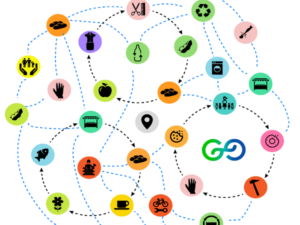 How could we build a viable alternative to the current, bank-controlled money system? Interview with Matthew Slater of the Credit Commons Collective
How could we build a viable alternative to the current, bank-controlled money system? Interview with Matthew Slater of the Credit Commons Collective
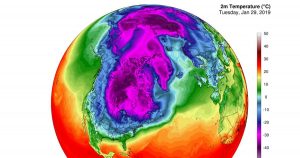 Joining the dots of the climate crisis with Matthew Slater
Joining the dots of the climate crisis with Matthew Slater
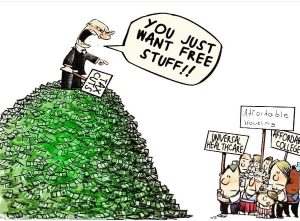 What’s the difference between capitalism and a free market?
What’s the difference between capitalism and a free market?
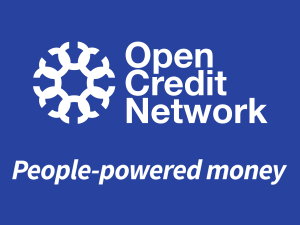 Become one of the first movers in a new, collaborative economy: Open Credit Network Alpha launch
Become one of the first movers in a new, collaborative economy: Open Credit Network Alpha launch
 What I’ve discovered about the money system and how the world is run, since working with the Open Credit Network
What I’ve discovered about the money system and how the world is run, since working with the Open Credit Network
 Coming together to build a new economy: Matthew Slater, barefoot economist and Credit Commons co-designer, Part 2
Coming together to build a new economy: Matthew Slater, barefoot economist and Credit Commons co-designer, Part 2
 The alternative to the current money system: Tim Jenkin, Matthew Slater & Dil Green
The alternative to the current money system: Tim Jenkin, Matthew Slater & Dil Green
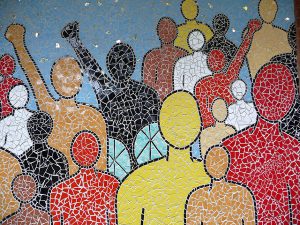 Commoning
Commoning
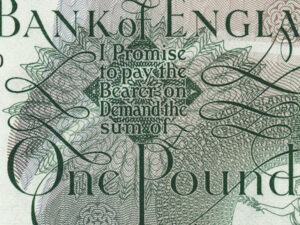 Low-impact money
Low-impact money
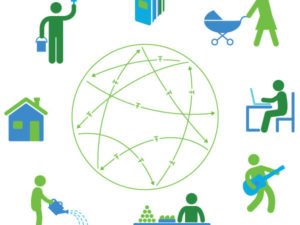 Mutual credit
Mutual credit
 Commons economy
Commons economy
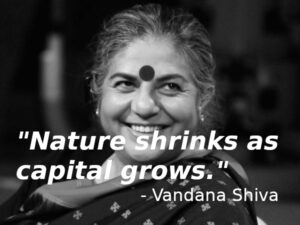 Steady-state economics
Steady-state economics
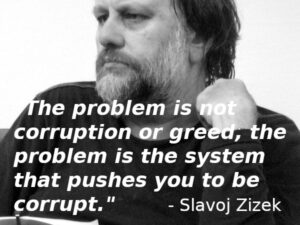 System change
System change


